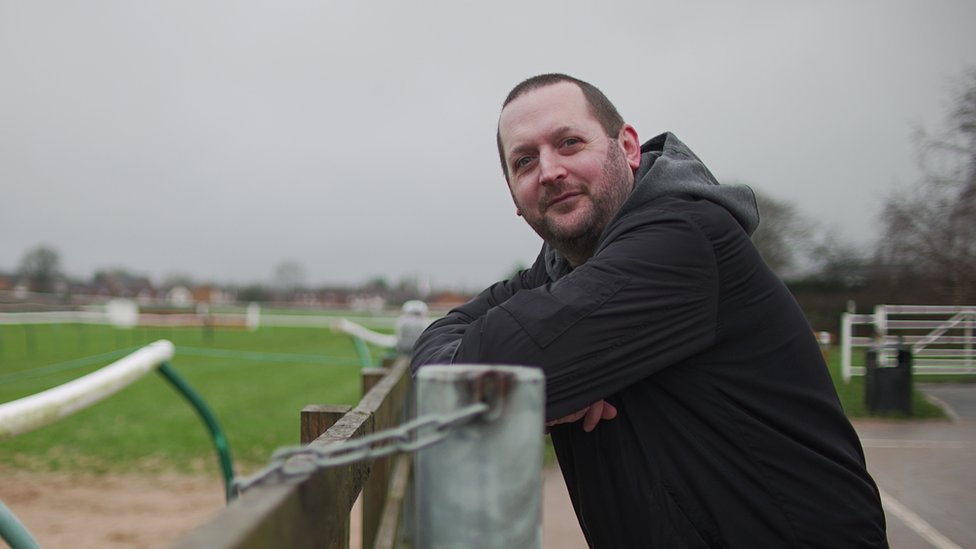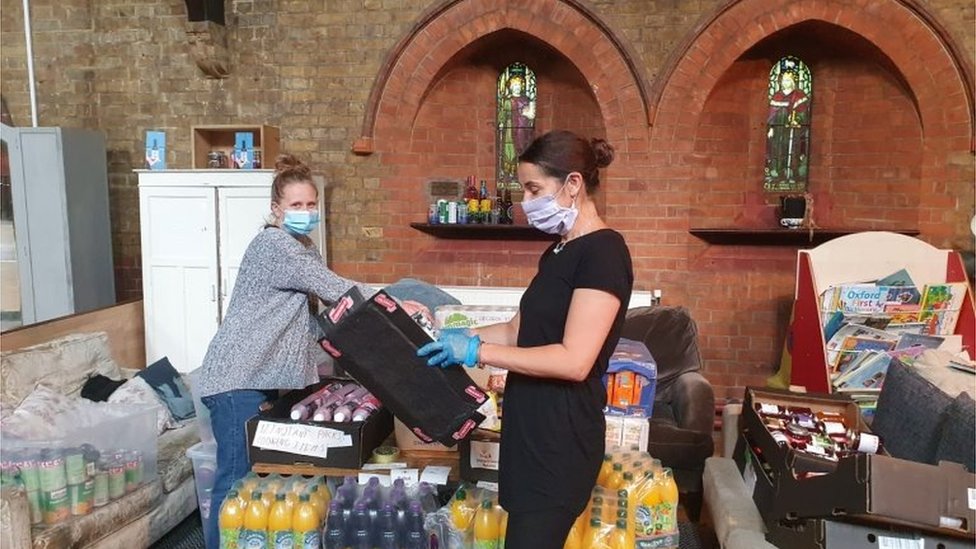
Scott Boerder, 38, moved to Warwick from Derby in late 2019 for a job in retail management but was made redundant.
Then the pandemic hit and he hasn't been able to find work.
"I have applied for lots and lots of jobs but instead of ten people applying for a job, there's 100 or 200 people".
Although his background is in retail he says he's been looking for any kind of employment from warehouse jobs to security work to cleaning the streets.
And as someone who had always been in work, Scott has found unemployment difficult.
"I'm used to the working life where you have spare money," he says.
He has been on Universal Credit since October 2019, and admits it has been a struggle.
"It is terrible - the first one or two weeks when you get Universal Credit, you are sort of okay, but the third and fourth week, you're struggling."
"It doesn't last - you've got your bills, your gas, electric, your TV licence, your water.
"I can't afford to have broadband, I'm on a pay-as-you-go telephone, I can't afford to go to have a coffee at a coffee shop."
"Money is tight, you have to think about it every day."
He says that without food banks and the charity Christians Against Poverty: "I'd really be in trouble."
On the brink
The report by the Joseph Rowntree Foundation urges the government to prioritise tackling poverty.
"Trying to work, care for children and stay healthy during a third lockdown will push many to the brink when they have few resources left," it says.
Director of the foundation Helen Barnard says: "It is a damning indictment of our society that those with the least have suffered the most before the pandemic and are now being hit hardest once again by the pandemic."
'It's impossible'
At the beginning of winter Rebecca, who lives with her eight-year-old daughter, invested £20 in candles.
"They last for 12 hours, so in the night time I can just put some candles on in my room and not put the electricity on," she says.
And when her daughter is at school she doesn't turn the heating on.
"I would just be freezing in the house and then save on electricity."
Despite working for a charity, Rebecca still has to rely on Universal Credit to make ends meet.
She says the benefit is "arbitrary and inconsistent" making it hard to budget.
"You have to count the pennies and be careful what's coming in and going out but when you've got no idea month-to-month what they may or may not pay, it's impossible."
"We just basically lurch from crisis to crisis every month, trying to make things work," she says.
"I'm already maxed out just paying for the bare minimum... so any dip in earnings from Universal Credit is massive because the only place you can take that money from really is food."
She says food parcels from the local church have been "a huge lifeline".
'A little bit less rubbish'
Last year, the government raised Universal Credit by £20 - something Rebecca says has given her much-needed "breathing space".
"I know that to some people £20 a week might not sound like anything much but £20 a week is literally our food spend, so that's massive.
"It's not the greatest thing in the whole wide world and we're not suddenly living like kings but it's a little bit less rubbish."
She has tried to save up food where she can including a big store of pasta but says the "day-to-day" stress of the pandemic has taken its toll.
"The added uncertainty is horrible," she says.

The Joseph Rowntree Foundation's report praises the government for increasing Universal Credit by £20 a week but says this rise must be made permanent and extended.
Both Labour and the SNP have urged the government to maintain the £20 increase, which is due to expire in April.
Their concerns have also been echoed by the chair of the Treasury Committee, Conservative MP Mel Stride.
"When the measure was originally brought in for a year on a temporary basis, I don't think the expectation then would have been that we would, at this stage, be in a third lockdown," he said.
"It's been a pretty long haul, that's been very difficult for a lot of people.
"The pandemic itself has disproportionately affected young people within ethnic minorities, but certainly poorer families. So they are, in a sense, bearing the brunt of the difficulties we're going through."
Responding to the report a government spokesperson said: "We are committed to supporting the lowest-paid families through the pandemic and beyond to ensure that nobody is left behind."
"That's why we've targeted our support to those most in need by raising the living wage, spending hundreds of billions to safeguard jobs, boosting welfare support by billions and introducing the £170m Covid Winter Grant Scheme to help children and families stay warm and well-fed during the coldest months."
"all day" - Google News
January 13, 2021 at 07:35AM
https://ift.tt/2XwT7KK
Covid: 'Money is tight, I think about it every day' - BBC News
"all day" - Google News
https://ift.tt/35pEz2D
Bagikan Berita Ini















0 Response to "Covid: 'Money is tight, I think about it every day' - BBC News"
Post a Comment